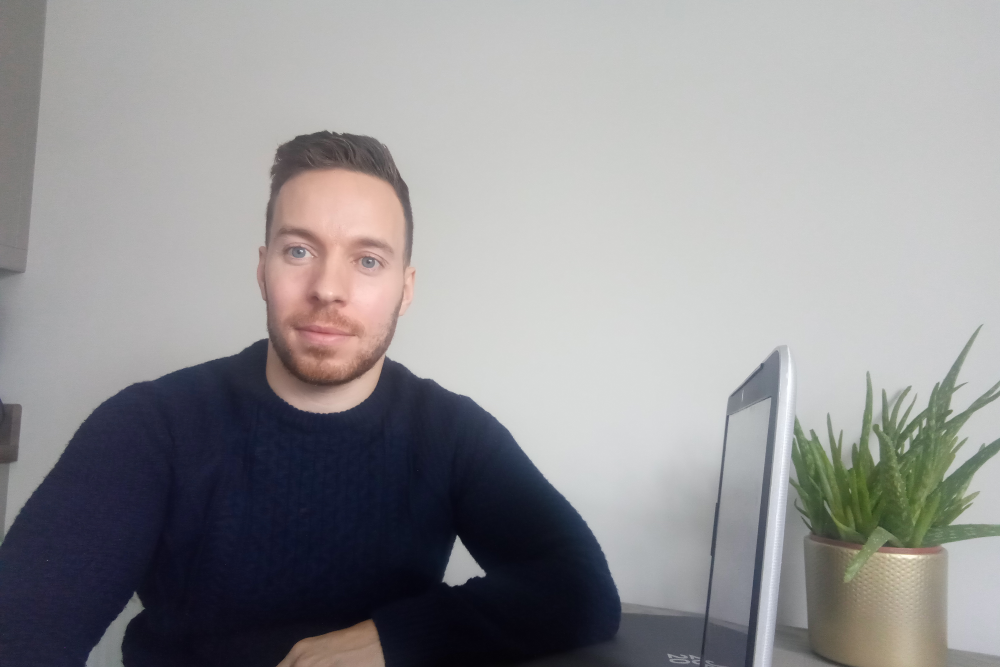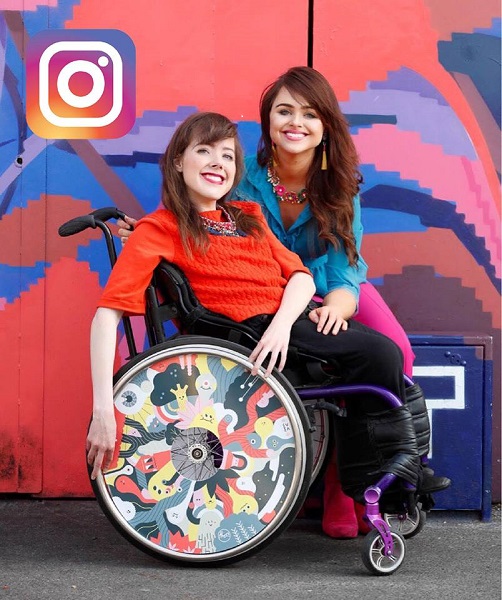Podcast Ep 136: Thomas Cooney from Technological University Dublin on the need to better support and encourage Ireland’s entrepreneurs with disabilities.
It’s one thing to muster all your ingenuity, resourcefulness and bravery to even contemplate embarking on an entrepreneurial journey, but try doing that with a disability; be it physical or otherwise.
For Professor Thomas Cooney, leader of a new Entrepreneurship for People with Disabilities programme at Technological University Dublin, disabled entrepreneurs face more profound challenges than most people realise and often this can boil down to basic things like bureaucracy.
“13.5% of the population of Ireland self-identify as having a disability … If policymakers and enterprise agencies are ignoring 13.5% of the population of Ireland, that’s not right”
The customised entrepreneurship programme addresses the additional and distinctive challenges faced by people with disabilities when starting their own business – an area that Cooney warns is highly under-resourced often overlooked.
Creating a level playing field
He believes self-employment can help people with disabilities to participate socially and economically and other plus sides like being able to choose their own hours or work remotely more flexibility than can be found in paid employment. However, there is limited awareness of self-employment as a career option for people with disabilities within their own community and within enterprise agencies and disability advocacy organisations.
The programme aims to provide participants with the skills and knowledge to become self-employed and help them overcome the challenges of creating their own job. Each participant also receives a business mentor through the Local Enterprise Office network.
Speaking on the ThinkBusiness Podcast, Cooney said the genesis of the programme was the creation of the Institute for Minority Entrepreneurship that was established in 2006 at the former Dublin Institute of Technology, that included various marginalised communities. As well as disabled people, this included immigrants, former prison offenders and members of the travelling community.
“What was common across all of these communities is that they have additional and distinctive challenges that the mainstream population doesn’t get, doesn’t understand and doesn’t appreciate. And equally, I would argue that policymakers and enterprise agencies don’t get. There is no tailored support for any of these communities.”
He points to the work of the OECD which publishes reports on what are termed the “missing entrepreneurs.”
“It’s about all-inclusive entrepreneurship,” Cooney said. “There is enormous untapped potential that exists within each of these communities, towards entrepreneurial activity and to the distinctive challenges that they face that the general community doesn’t face.”
The first iteration of the course last year was oversubscribed with 38 applications for 20 places.
One of the businesses to emerge is Irish mental-wellness start-up Ailim Healing, which has developed an online programme that aims to reduce the anxiety of people with neurological conditions who suffer from social anxiety disorders.
The patient-led, educational programme has a particular focus on empowering people who are experiencing the deeply destabilising impact of emotional abuse by family members, friends, partners, or colleagues, enabling them to remove themselves from unhealthy relationships in their own time and in their own way.
Niamh Malone, founder of Ailim Healing, developed her business idea last year while participating in a new pilot entrepreneurship course for people with disabilities, co-founded by the Open Doors Initiative, sponsored by Pobal, and delivered by Technological University Dublin (TU Dublin).
Niamh has lived with social anxiety most of her life, and has a background in healthcare, having worked previously as a Clinical Nurse Specialist in stroke aftercare.
“Some years ago, I had a rare stroke that exasperated my Social Anxiety Disorder and I noticed that while there were a range of digital tools available to those experiencing a high level of stress or sleeplessness, there were no long-term specific online tools to overcome Social Anxiety Disorder or gaslighting.”
This entrepreneurship course with TU Dublin, allowed Niamh to carry out customer segmentation and market research, while also receiving support from TU Dublin Innovation regarding the legal and financial implications of starting a new business.
A few short months later, Niamh formed a spin-out with TU Dublin Innovation, which identified her programmes unique position in a crowded market, helped her with forming a company, business planning, product development, and ultimately licensing the technology for her new start-up. Niamh is now in discussions with leading healthcare organisations in Ireland and internationally interested in partnering with Ailim Healing.
“Ailim Healing has the potential to reduce the number of GP visits made by people with Social Anxiety Disorder, enabling them to self-manage, control and understand their mental health,” said Malone.
According to Cooney the demand for the programme and the efforts of entrepreneurs like Niamh Malone show the incredible, untapped potential that exists in our communities if we only looked hard enough and supported people well enough.
“13.5% of the population of Ireland self-identify as having a disability, according to the 2016 Census. For most people, unless they can see a disability it doesn’t register with them. If policymakers and enterprise agencies are ignoring 13.5% of the population of Ireland, that’s not right.”
One of the jarring realities posed by Cooney is that many disabled entrepreneurs don’t start businesses because they’ve fallen into what can be described as the “welfare benefit trap.”
“It’s a big block in Ireland but also across the world. People with disabilities are afraid to start businesses because they are afraid of losing stable income. And, in particular, losing their medical card, rent allowances or whatever else.”
He pointed to the Back to Work Enterprise Allowance Scheme which provides support only for the first two years of a person starting a business and also pointed out that because of the nature of the disability, entrepreneurs with disabilities need to be able to step away from work occasionally to rest or look after their health.
Despite these challenges, Ireland has great examples of entrepreneurs who forge ahead. One example is Derek Walker from Donegal-based cold pressed juice business Natnoot, who spoke to entrepreneurs on the course, and showed how he never let his visual impairment hold him back.
Of the 20 entrepreneurs that joined the programme last year, Cooney said that six businesses have emerged from the course. “Some of the ideas just weren’t viable and it led to really tough discussions, but there were wonderful ideas coming through and for some people the market wasn’t big enough.”
But for Cooney, the real challenge facing entrepreneurs isn’t their ideas or drive or ambition, the reality is the pitch just isn’t level enough for them. He cited the case of one disabled entrepreneur, a successful photographer, who had to give up his business because the costs of hiring someone to carry equipment and drive, were too much.” This was despite the photographer being booked out for two years in advance.
“The cost of living with a disability is significant with many additional costs,” Cooney lamented.
As well as additional costs, disabled entrepreneurs and professionals are battling perceptions. The sheer value that neurodiverse workers can bring to the workplace never mind starting their own businesses has never been embraced. “That’s a huge double oversight.”
Cooney said that the creation of a universal basic income for artists is something that could also be considered for disabled entrepreneurs to give them the stability and certainty to forge ahead but also be able to deal with their disabilities when necessary without worrying if the business will implode.
“It’s about people wanting to be economically viable and contributing to society in a way that they know they can.”
-
Bank of Ireland is welcoming new customers every day – funding investments, working capital and expansions across multiple sectors. To learn more, click here
-
Listen to the ThinkBusiness Podcast for business insights and inspiration. All episodes are here. You can also listen to the Podcast on:
-
Spotify
-
SoundCloud
-
Apple





